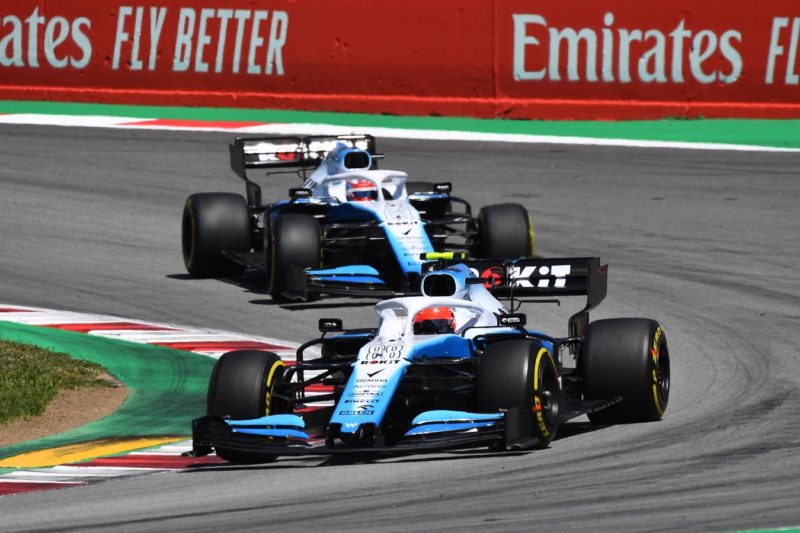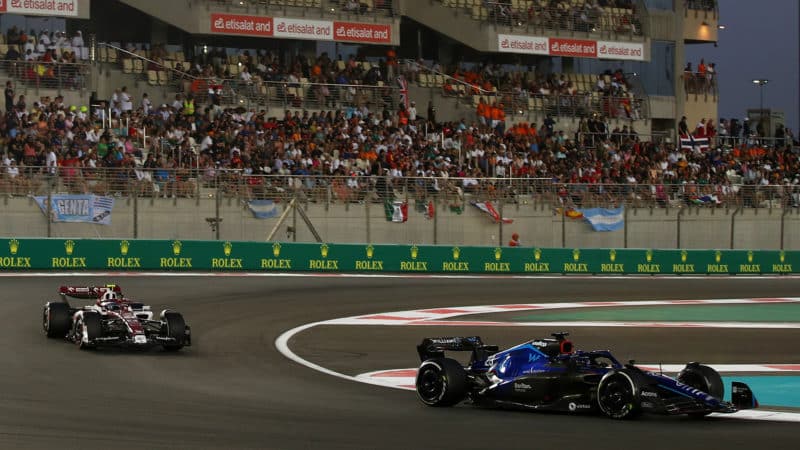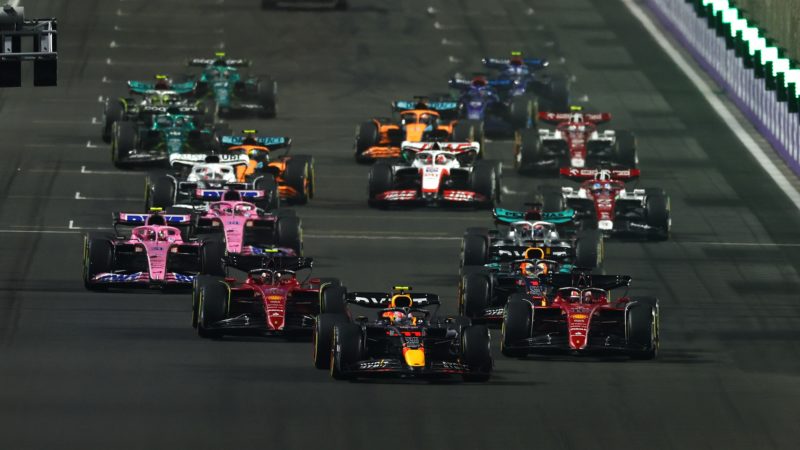“As a driver you can put in such a fantastic performance and you’re rewarded with absolutely nothing. Then if your team-mate, that you’re fighting in a lowly position, in a very fluky race scores one point, they beat you in the championship,” said Davidson.
“That’s really irritating when you’re fighting in those low positions because you’re like, ‘well, they shouldn’t be [ahead]’.
“Take Robert Kubica and George Russell in the Williams for example, Robert beat George in the [2019] championship and you think, ‘well, it doesn’t show the true story does it?’
“That one race Robert drove well, he got a point, it was Hockenheim in that really chaotic race, everyone crashed and even Max Verstappen did a 360 [spin] and Lewis [Hamilton] went off.
“So it’s one of those races where if you survived, you are going to score a point and that’s what happened with Robert. Of course he did the job that day but all the other days, George was easily fastest.”

In a 21-round championship, Kubica only finished above Russell three times yet was classified ahead in the championship
But should the championship attempt to reflect the competitive order?
Some of F1’s best-loved races involve an underdog triumph in spite of the normal competitive order: Panis in Monaco, Maldonado in Spain, and Gasly — as well as Ricciardo — in Italy.
And should scoring points be made less meaningful? You’d never again see a driver in tears after scoring their first point, as was the case for Russell, who finally hit the top ten in 2021.
We’ve mapped last year’s race results onto our extended points system (sprint and fastest lap points remain the same) to see how it might affect the order.
2022 season scored by extended points system
| Position | Driver | Points | Official 2022 position |
| 1 | Max Verstappen | 1061 | 1 |
| 2 | Sergio Perez | 719 | 3 |
| 3 | Charles Leclerc | 718 | 2 |
| 4 | George Russell | 661 | 4 |
| 5 | Lewis Hamilton | 602 | 6 |
| 6 | Carlos Sainz | 575 | 5 |
| 7 | Lando Norris | 359 | 7 |
| 8 | Esteban Ocon | 325 | 8 |
| 9 | Fernando Alonso | 269 | 9 |
| 10 | Valtteri Bottas | 208 | 10 |
| 11 | Sebastian Vettel | 206 | 12 |
| 12 | Lance Stroll | 190 | 15 |
| 13 | Daniel Ricciardo | 189 | 11 |
| 14 | Pierre Gasly | 182 | 14 |
| 15 | Kevin Magnussen | 141 | 13 |
| 16 | Zhou Guanyu | 122 | 18 |
| 17 | Alex Albon | 122 | 19 |
| 18 | Mick Schumacher | 117 | 16 |
| 19 | Yuki Tsunoda | 115 | 17 |
| 20 | Nicholas Latifi | 63 | 20 |
| 21 | Nyck de Vries | 14 | 21 |
| 22 | Nico Hulkenberg | 10 | 22 |
The gap Verstappen holds over the rest of the field remains just as significant, while Nicholas Latifi remains rooted at the bottom, only above last year’s part-timers.
But there are changes in the midfield. To maintain the significance of a top ten finish, we’ve made some of those places more valuable than they are now: under the extended system, finishing seventh earns almost a third of the points of a winner. The current system awards just under a quarter of the points.




